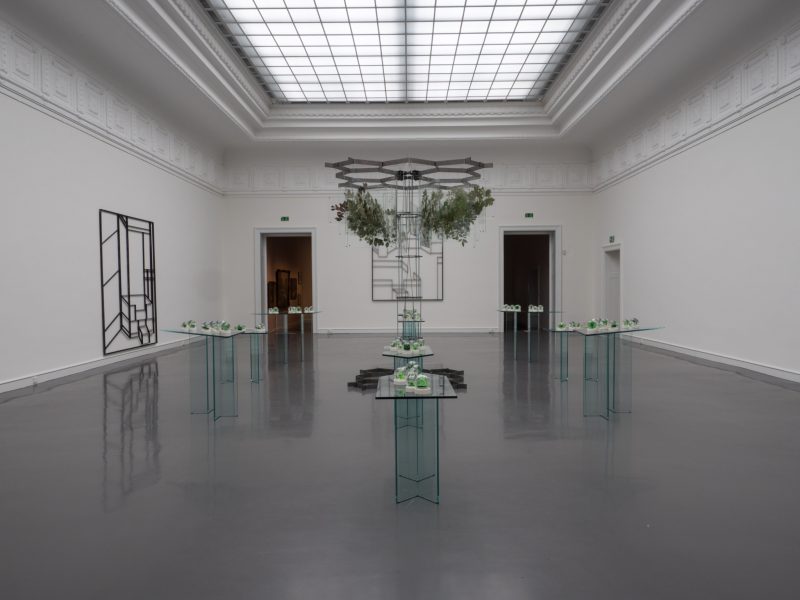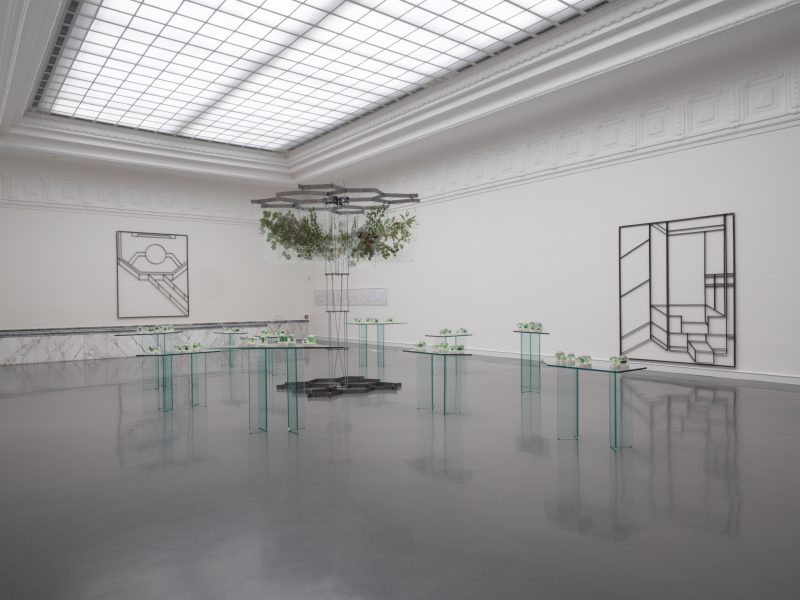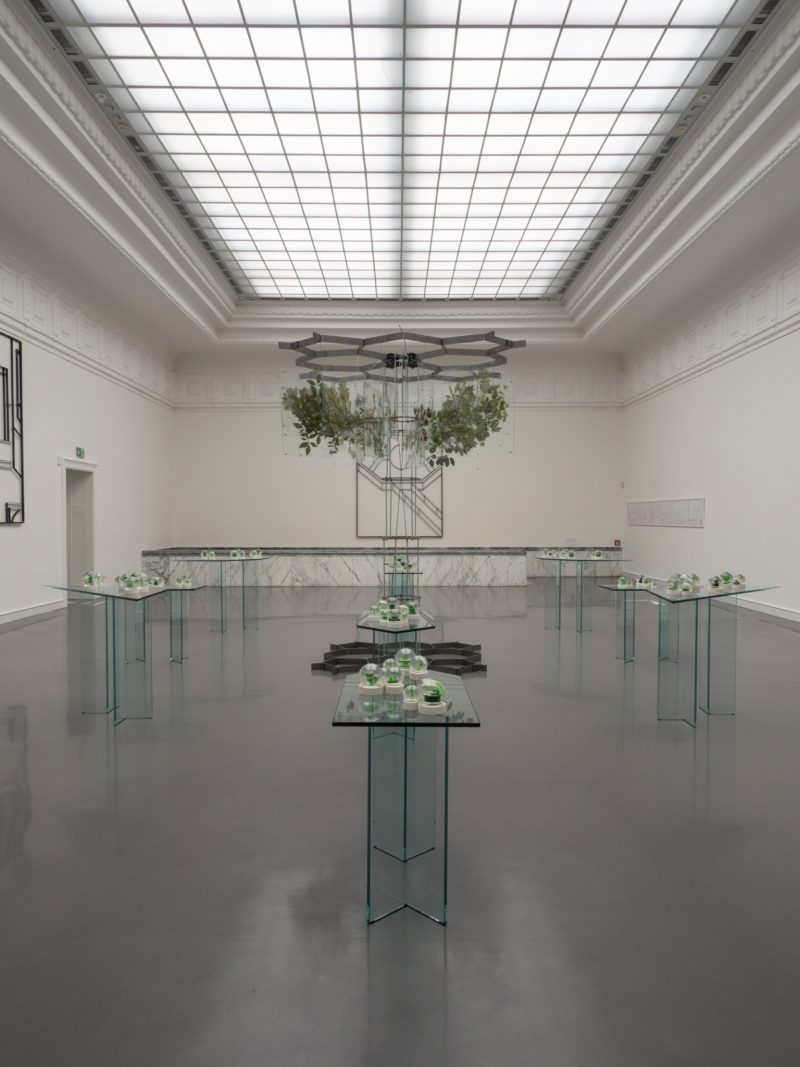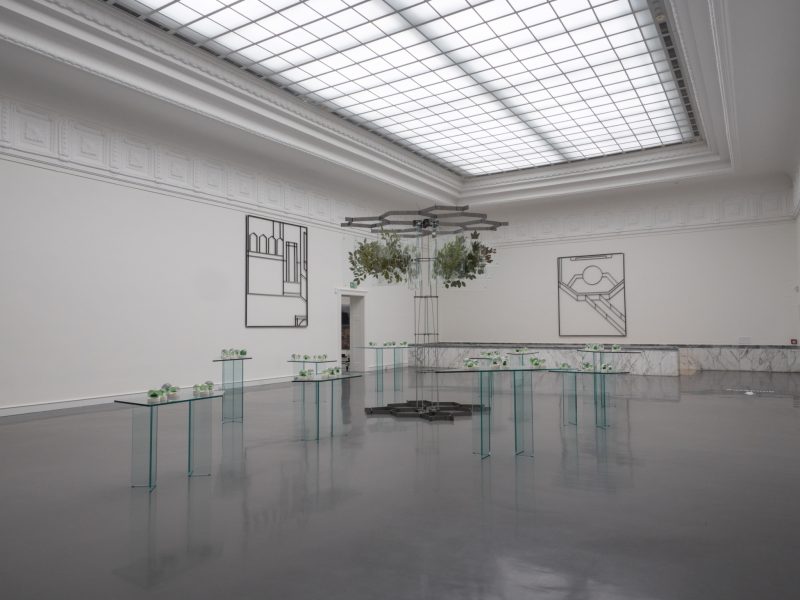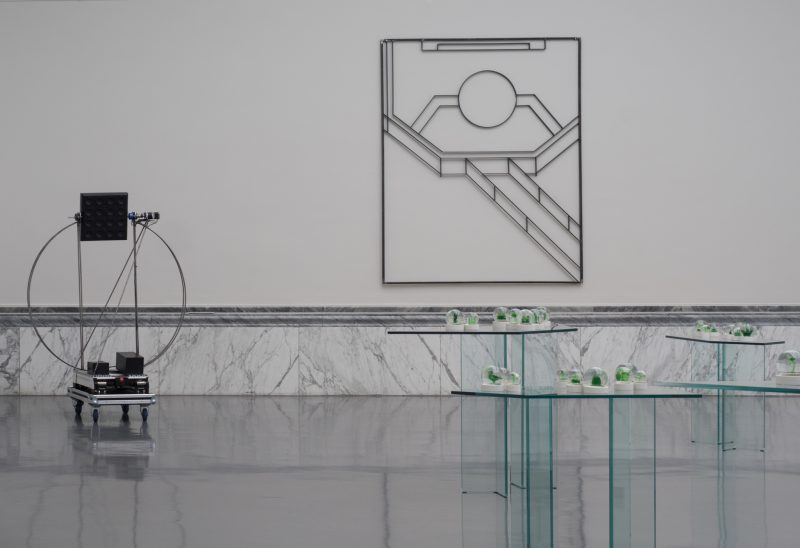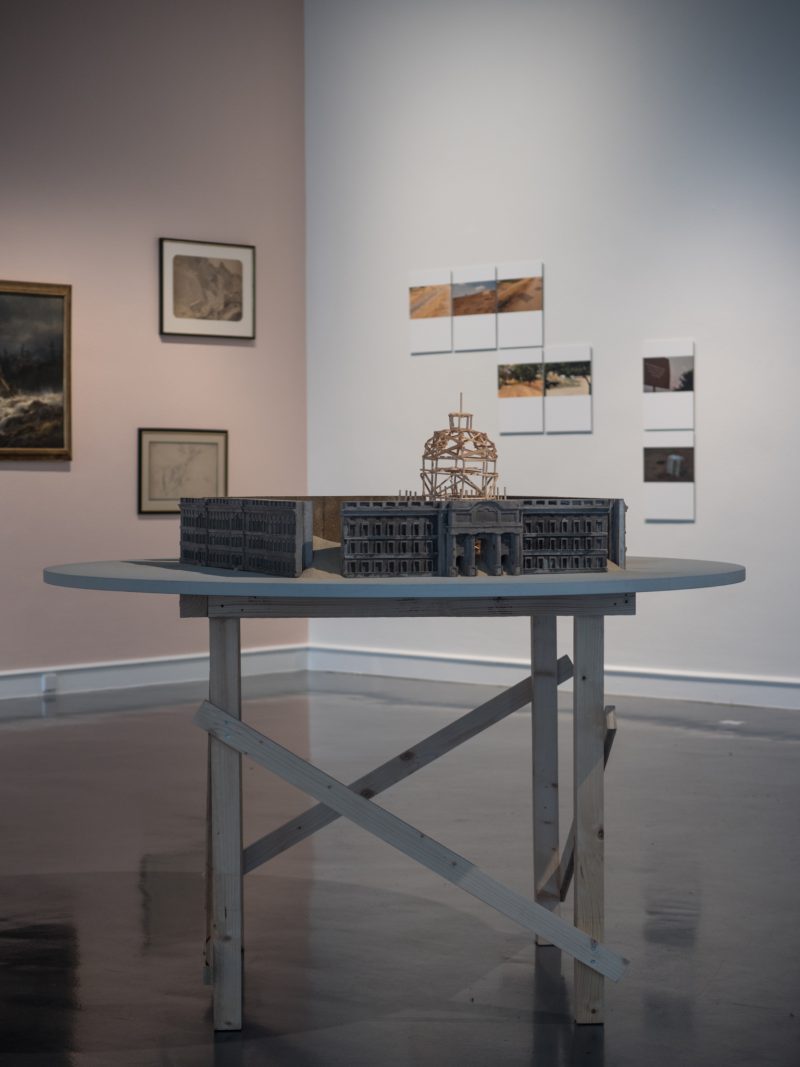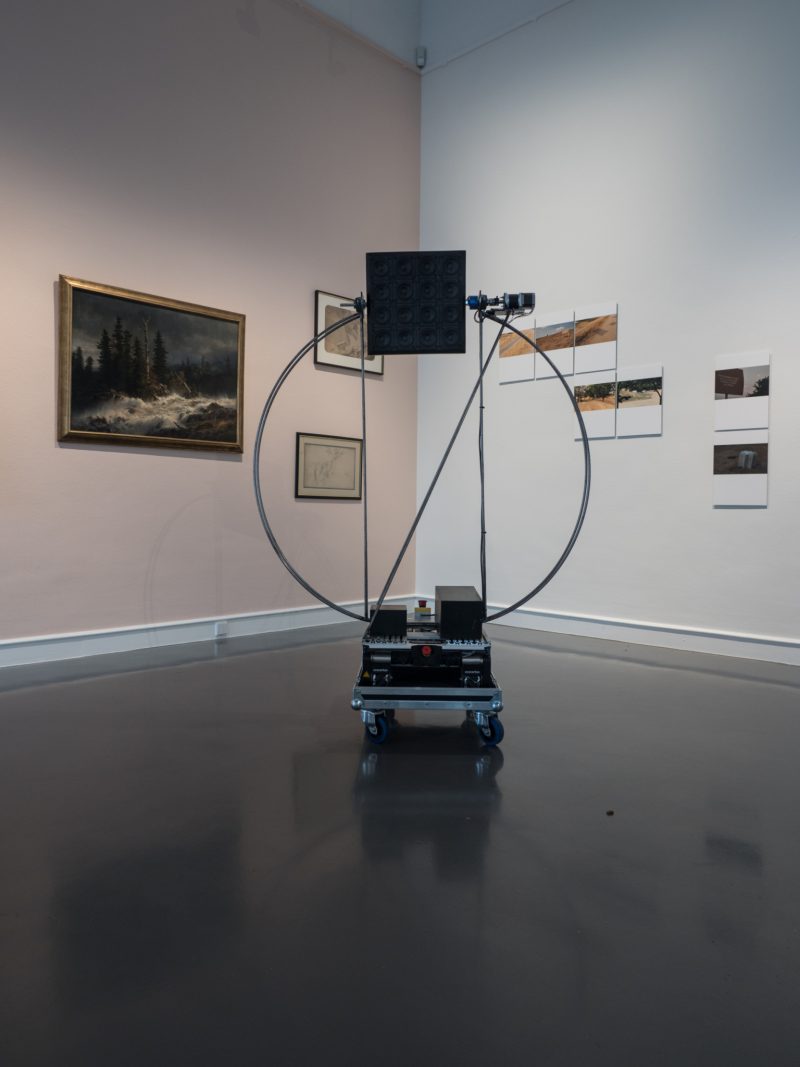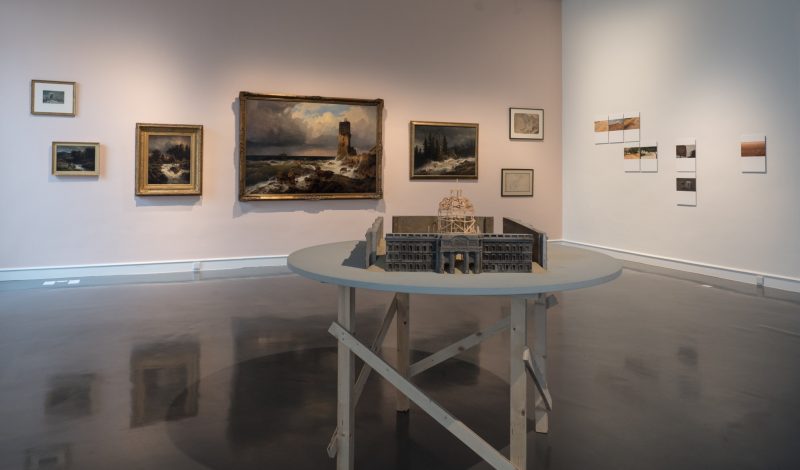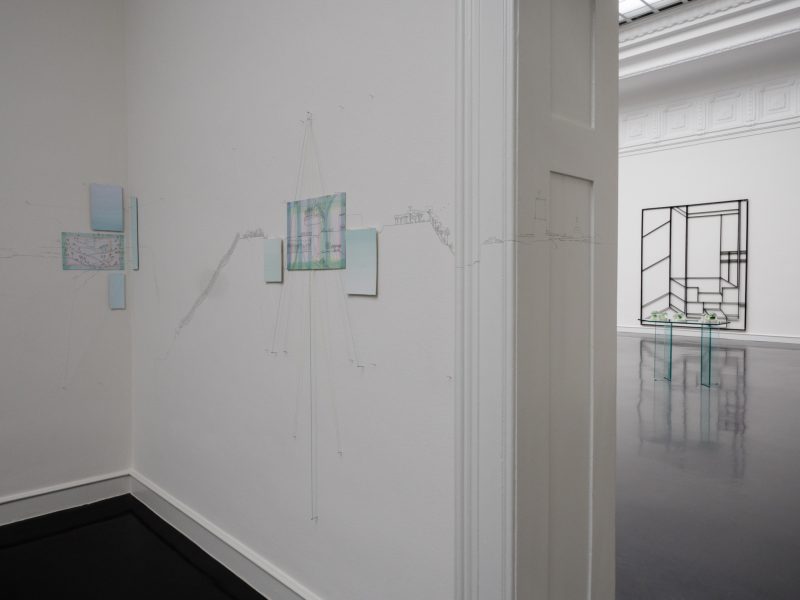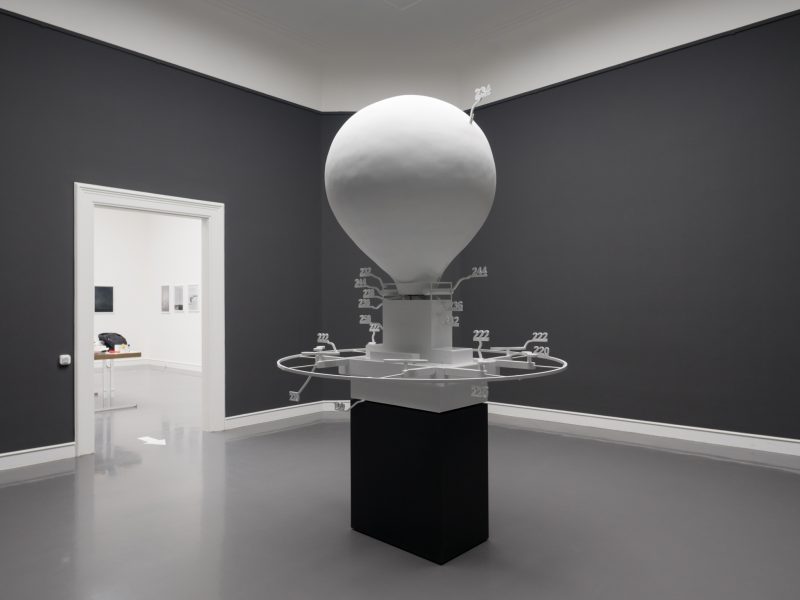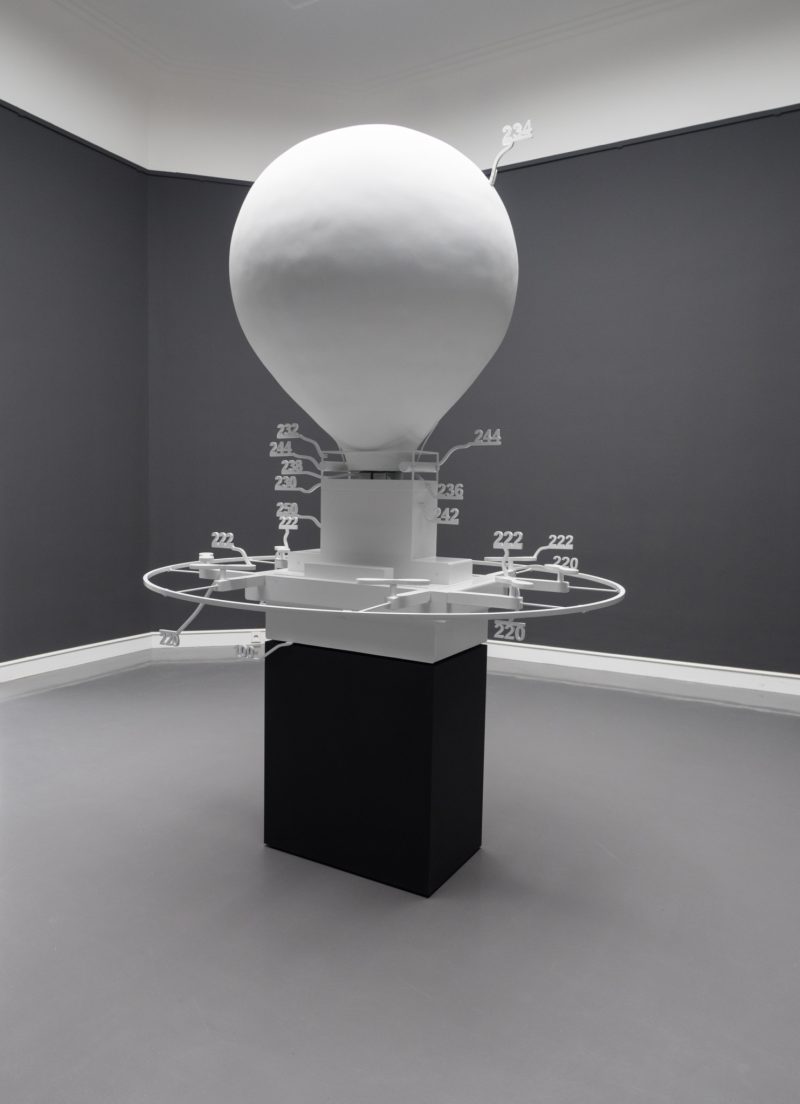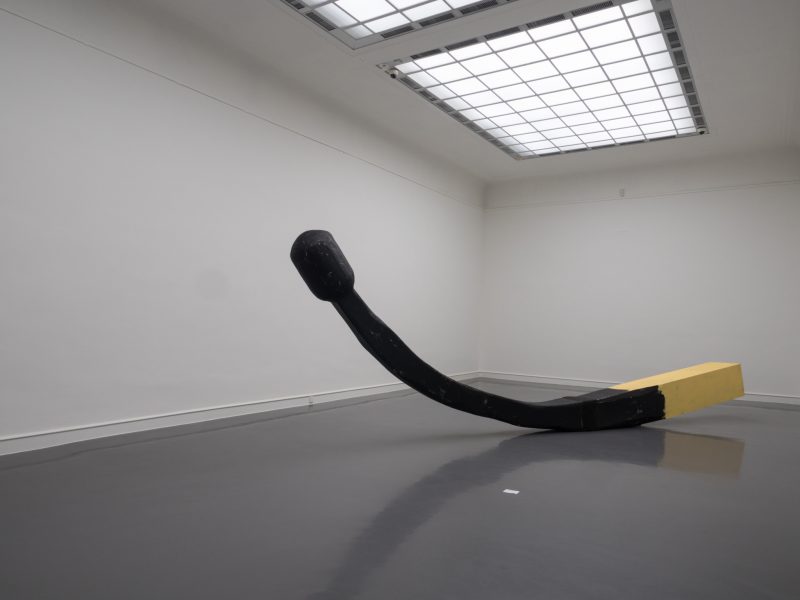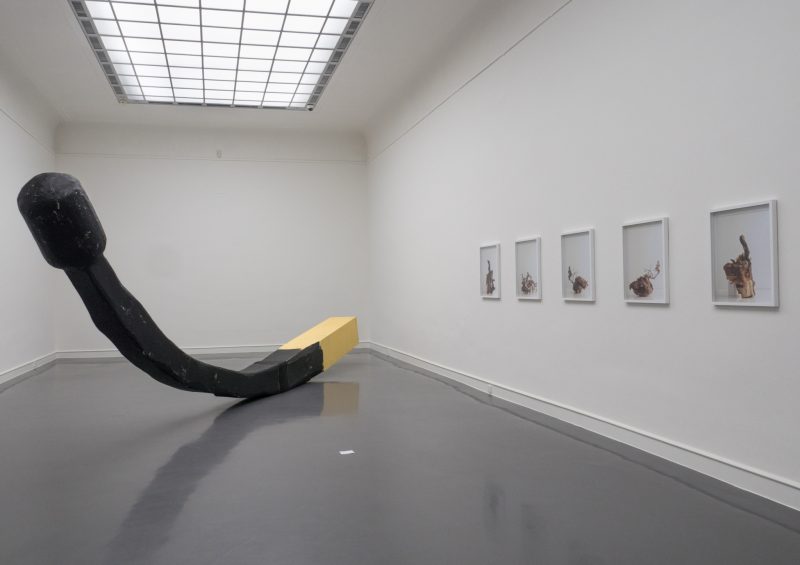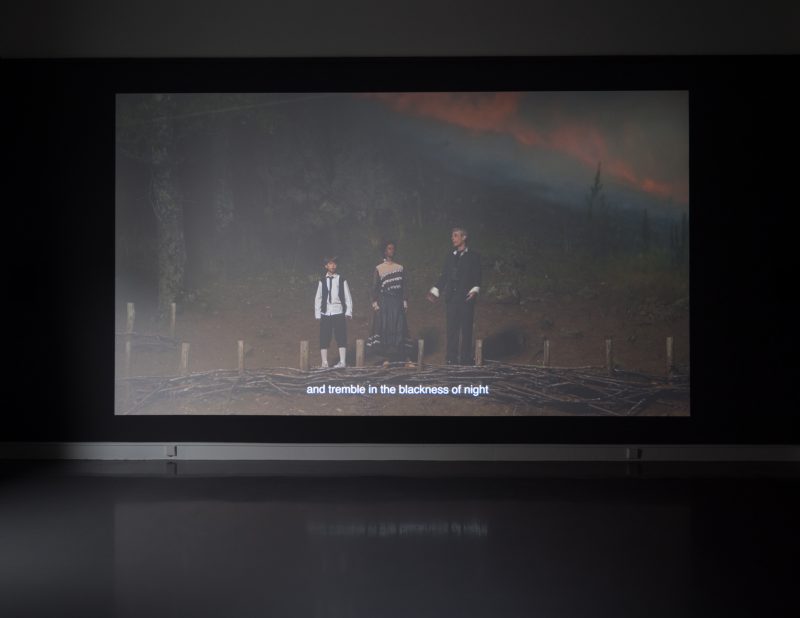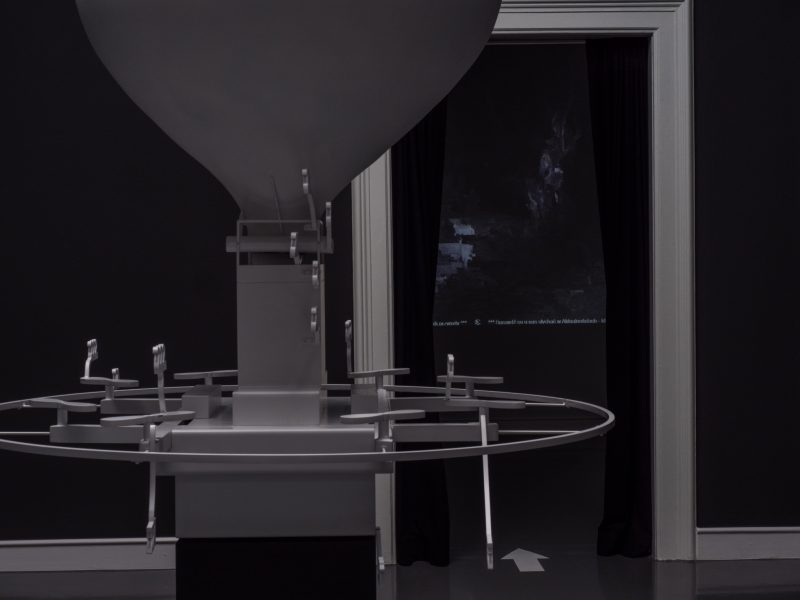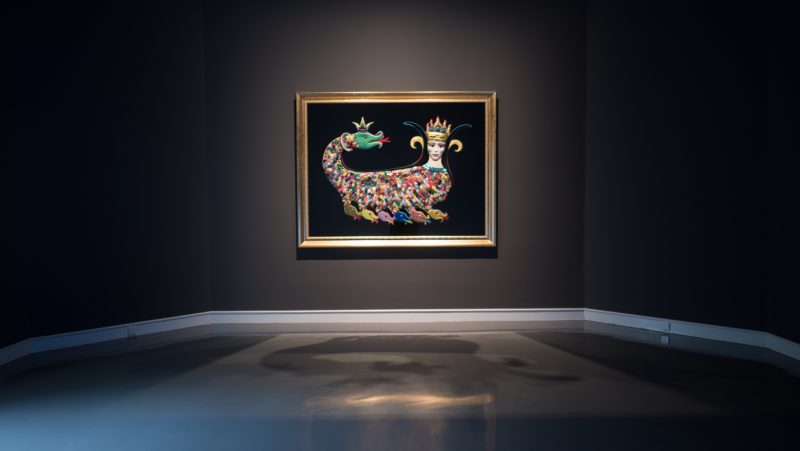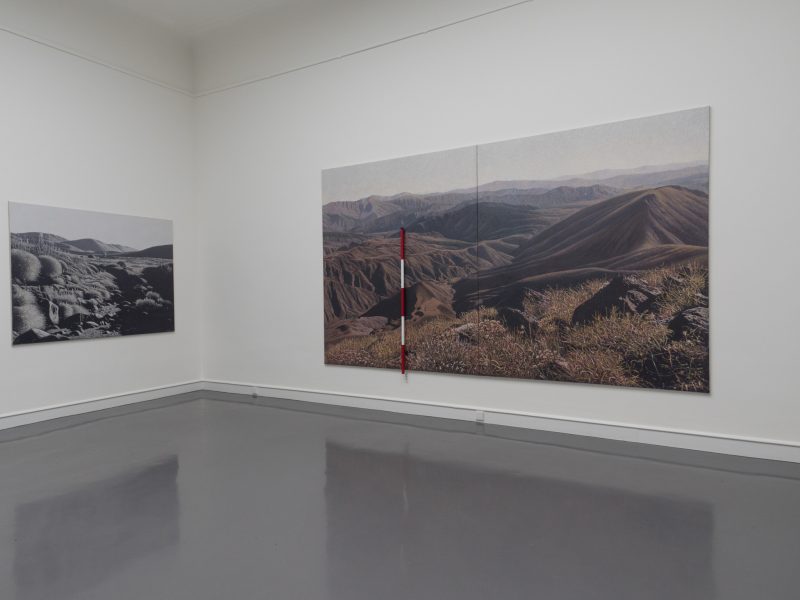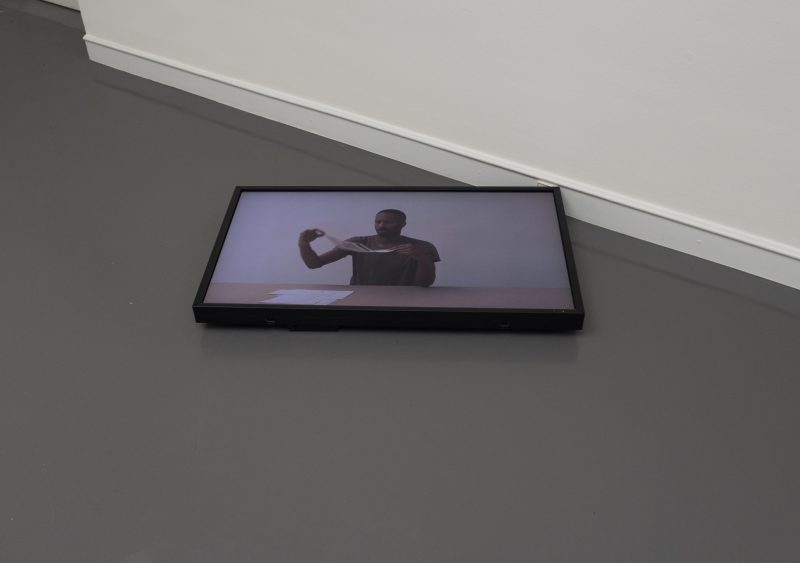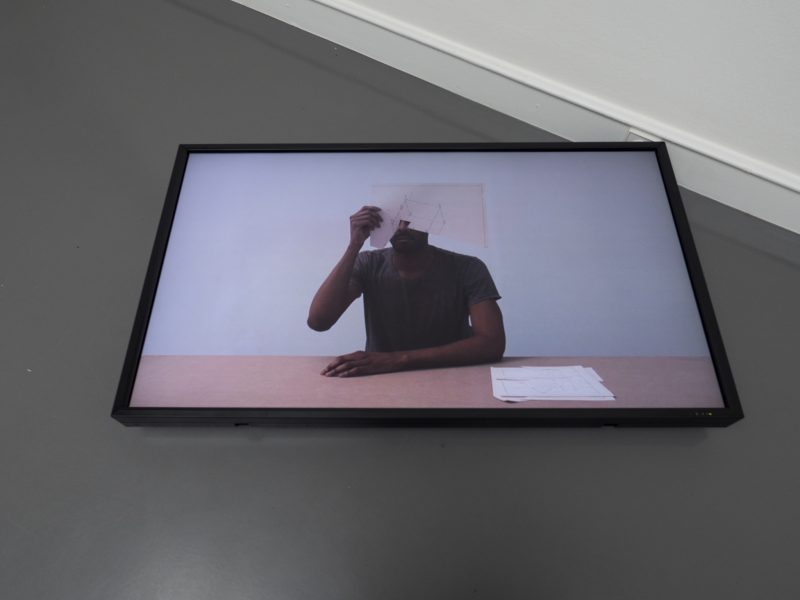State and Nature
Artists
- Andreas Achenbach
- Sina Ataeian Dena
- Khaled Barakeh
- Yael Bartana
- Mehtap Baydu
- Alfredo Ceibal
- Mahmut Celayir
- DAF - Dynamische Akustische Forschung
- Simone Demandt
- Egemen Demirci
- Sunette L. Viljoen
- Simon Denny
- Silvina Der Meguerditchian
- Nina Fischer
- Maroan el Sani
- Regina José Galindo
- Anike Joyce Sadiq
- Stelios Kallinikou
- Henrik Olesen
- Alexandra Pirici
- Agnieszka Polska
- Jimmy Robert
- Jan St. Werner
- Michael Akstaller
- Nele Jäger
- Oliver Mayer
- Gabriel Rossell Santillán
- Neda Saeedi
- Cengiz Tekin
- Anton Vidokle
Curators
- Çağla Ilk
- Misal Adnan Yıldız
The Staatliche Kunsthalle Baden-Baden is an institution of the State of Baden-Württemberg under the auspices of the Ministry of Science, Research, and the Arts of Baden-Württemberg.

Funded by the German Federal Cultural Foundation
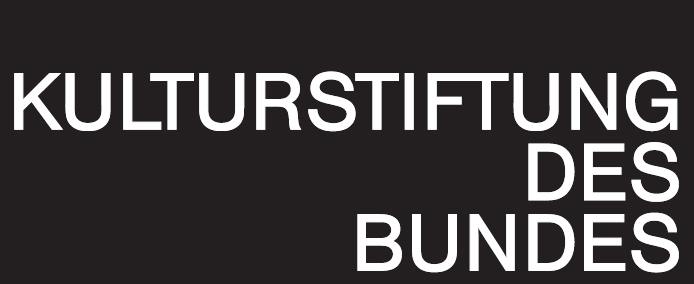
Funded by the Federal Government Commissioner for Culture and the Media
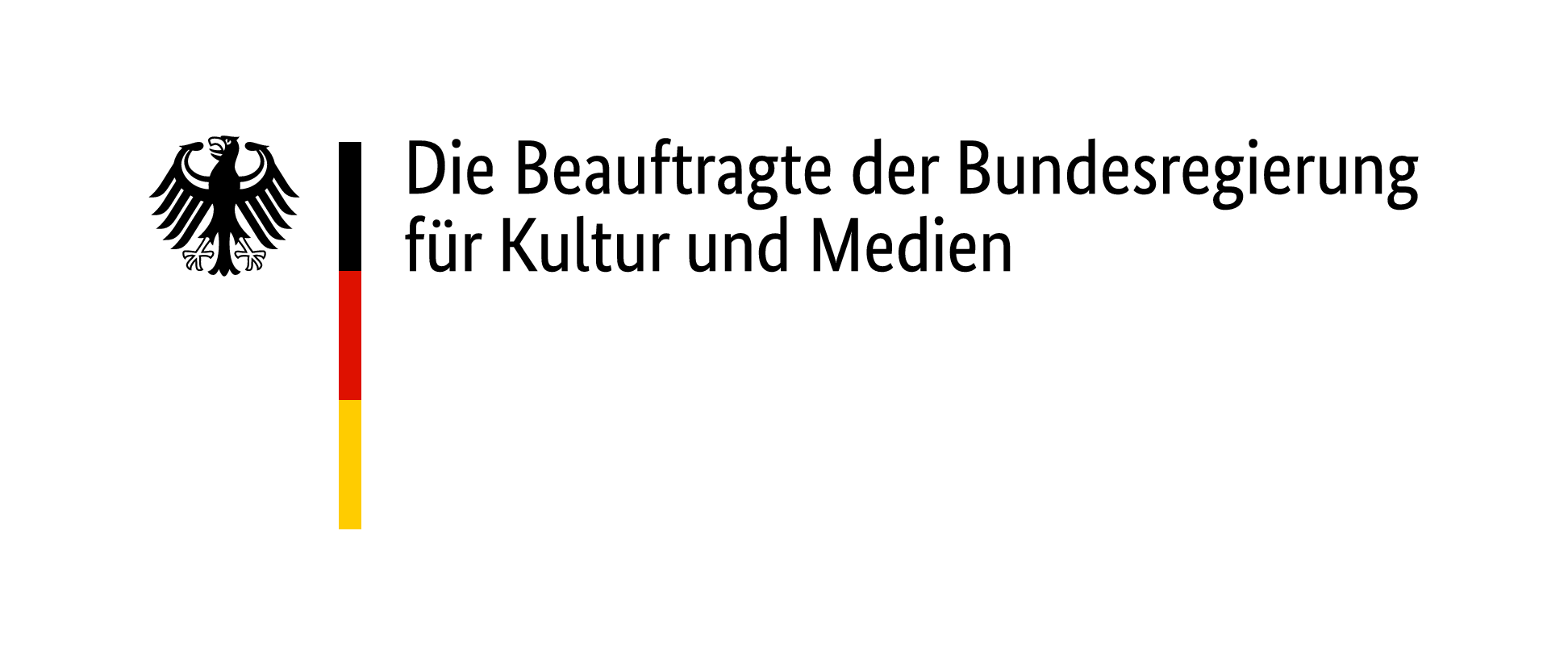
Our media partner:

“Buraya bakın, burada, bu kara mermerin altında
Bir teneffüs daha yaşasaydı
Tabiattan tahtaya kalkacak bir çocuk gömülüdür
Devlet dersinde öldürülmüştür.”*
Situated in the tapering city park of Lichtentaler Allee, the Kunsthalle Baden-Baden, as a state-run institution, is an ideal place for enquiry into the changing relationship between the state and nature -two entities which have a massive impact on human lives. The exhibition is thus also a critical reflection on the heritage and reception of the Kunsthalle in relation to the surrounding nature and an attempt to re-evaluate policies of representation, attributions of the self and others, and social and economic infrastructures.
State and Nature will be expanded through a discussion, performance, and event programme with Alexandra Pirici, Regina José Galindo, Mehtap Baydu, and Denise Ferreira da Silva, among others.
Inspired by Ece Ayhan's anthology of poems Devlet ve Tabiat [State and Nature] (1973), particularly the above quoted lines from "Monument of the Unknown Student," the eponymous exhibition deals with transitions in the relationships between these two entities. For it is often more than purely binary: the assumption that nature exists only when it is untouched by humans or that state power is exercised only between humans, has long ceased to be true. Ece Ayhan, a native of the Aegean, was a prominent and controversial protagonist of the so-called İkinci Yeni movement, which revolutionized Turkish-language literature. The inspirational power of his writing emancipated poetry’s capacity to speak about non-privileged people, invisible communities and subtle gestures. In his work, the state appears not as the force ordering the chaos of nature but as an unpredictable energy, which people are at the mercy of; nature, on the other hand, appears as the utopia of lost reason. This political reading of nature and state also characterises the exhibition.
In particular, the newly commissioned art works and collaborations generated for State and Nature provide a framework for revisiting these two concepts and looking at the Kunsthalle's immediate surroundings through different eyes. The works call for a new perspective on historical developments of state, citizenship, and social order, point to limited worldly resources, and ask genealogical questions about human presence on earth.
Entitled SYNCH, there will now be a new space at the Staatliche Kunsthalle Baden-Baden dedicated to collections, collectives, and creative ideas beyond the temporary exhibitions. Here, as part of State and Nature, the two-hundred-year-old sketches and paintings by German painter Andreas Achenbach will meet one of the research projects supported by the Kunsthalle. Robodynamic Diffusion (RDD) is an innovative instrument that unfolds sound waves through spatial effects. The sound generated combines with the imaginary sounds of landscape paintings, seascapes, and other examples of German Romanticism that augur entropy, disorder, and damage.
The video installation Pastoral Symphony (2021) by Diyarbakır-based Kurdish artist Cengiz Tekin shows the destruction of centuries-old settlement structures by gigantic dam projects. He asks where the boundary lies between the environment human beings create and the collapse of nature in currently distressed areas from Mesopotamia to Central America. Mehtap Baydu's new sculptural work has a clear mythological reference to the female ontology of governance: in Şahmaran (2021), the Berlin-based artist with Zazaic roots refers to the legendary figure from the folk art of Anatolia, Iraq, and Iran, who symbolizes the vulnerability of nature and female fertility. Her immortality is also an empowering symbol of female wisdom and resilience.
In the early morning hours of October 4, 2020, Yael Bartana staged her new performance Days of Awe (2020) on the roof of the Staatliche Kunsthalle Baden-Baden. The artist transformed this experience into a new film (The Werewolf (WT) (2021)), which was created for the Kunsthalle and will premiere here. A musician welcomes the rising sun by blowing several times into a shofar, a musical instrument made from a ram's horn, which in Jewish tradition is sounded exclusively on Yom Kippur. The sound of the shofar was amplified and spread throughout Baden-Baden. Yael Bartana thus also refers to interconnected aspects of German and Jewish history, especially in the context of this year's nationwide celebration of the anniversary of "1,700 years of Jewish life in Germany."
Departing from the complex residue of colonial history on the island of Cyprus, Cypriot artist Stelios Kallinikou's photographic works Flamingo Theatre (2015) feature migratory birds and fighter jets thundering through the sky. They form poetic choreographies and dissolve the supposed opposition between the state and nature. Through this form of coevality, the British armed forces and the flamingos that repeatedly congregate on their migratory routes in Cyprus become agents of a smoldering geopolitics and its consequences for the ecosystem.
In Two Shades of Green (2021), Neda Saeedi directs her artistic gaze towards a possible future in which architecture and plants are intimately connected. Her vision of infrastructure enables a coexistence that promotes mutual flourishing, instead of driving cables and concrete pipes through the living earth and conceiving of nature and human life as opposites. For her installation, the Iranian artist collected leaves from walks in Lichtentaler Allee, where numerous plant species from all over the world have been planted and raised for two centuries and transformed them into a new kind of herbarium.
Agnieszka Polska's video The Longing Gaze (2021) connects questions of relationship and consensus to intimate togetherness, without disregarding the technologized biopower of global capitalism. The Corona crisis has shown how sophisticated surveillance apparatuses spy on and record our lives. At the same time, they have become our only remaining access to the world; a world that reaches us through digital devices, as our bodies are isolated further from each other in the face of the virus.
*Ece Ayhan, “Meçhul Öğrenci Anıtı,” Devlet ve Tabiat (1973). Parallel to the preparation of the exhibition and accompanying publication, selected poems by Ece Ayhan will be translated into German for the first time. This poem has been translated into English by Talat S. Halman, entitled "Monument of the Unknown Student":
"[...] Look here, underneath this black marbleIs
buried a child who would have come to the blackboard
From nature if he had one more breath of life
He was killed in the class on Government."
Curated program
Black Cracker
State and Nature performance program
Alexandra Pirici - Terraform
State and Nature Performance Programm
Regina José Galindo - Birds
State and Nature performance program
Mehtap Baydu - Mit Müttern und Töchtern
State and Nature performance program
Denise Ferreira da Silva & Arjuna Nauman
State and Nature performance program
Robodynamische Diffusion: RDD
State and Nature performance program
